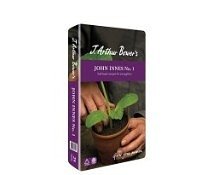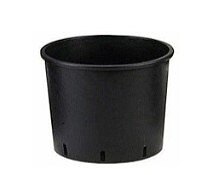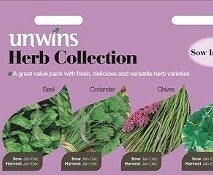
Tips for growing your own herb garden (plus delicious recipes!)
5 Minute Read
Welcome to the aromatic world of growing your own herb garden, where the joys of harvesting fresh flavours are just a few steps away. In this comprehensive guide, we not only share essential tips for growing a thriving herb garden but also invite you to savour the culinary delights that await with some delicious recipes.Herb garden ideas
Are you tired of purchasing herb plants from the supermarket only for them to wilt? Would you like to have an abundance of fresh herbs to use in your everyday recipes? Wouldn't it be great to grow your own herbs at home? Herbs are incredibly versatile and can add depth and flavour to dishes and with some patience, you can have a thriving herb garden at home in no time.In this article, we're sharing our top tips for growing herbs and including some delicious recipes to inspire and motivate you to get growing!
Herb garden essentials:
• Loam based compost (such as John Innes No.1)
• Coarse grit or perlite
• Long tom pots (if planting in containers)
• A balanced fertiliser
• Coarse grit or perlite
• Long tom pots (if planting in containers)
• A balanced fertiliser
How to start a herb garden
Firstly, having the right equipment and compost is crucial to your plant's growth. When selecting compost, we recommend using a gritty, well-drained compost - you can create your own formulation by adding 25 per cent coarse grit or perlite to a loam-based compost, such as John Innes No 1. It should be free draining but retain enough moisture to keep your plants hydrated but not water-logged.
In terms of pots, consider the size of the herbs you want to grow and select plant pots that provide sufficient space for the roots to grow and contain drainage holes. Long tom pots are ideal, as they have the required depth to ensure plants have the root space to thrive.
Finally, don't forget the importance of a good pair of secateurs when harvesting or cutting back!
Choose the Right Location
To grow herbs successfully, location is crucial, as most herbs require plenty of sunlight and good drainage. Choose a spot with direct sunlight for at least six to eight hours daily. If you're short on outdoor space, consider growing herbs in containers on a sunny windowsill or balcony. Make sure to choose a location sheltered from strong winds and heavy rainfall.
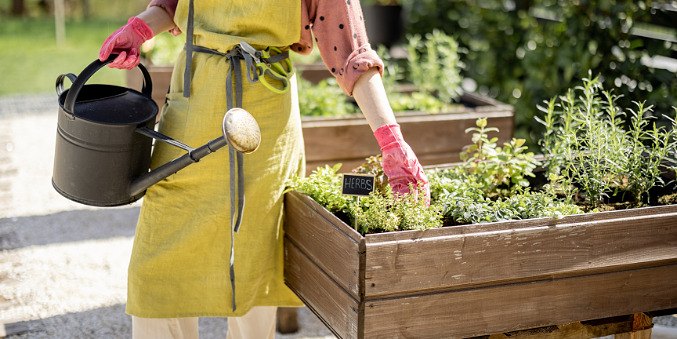
Select your herbs
If you're new to gardening, it's best to start small. Choose herbs you use frequently in cooking, such as parsley, thyme, or basil. Focus on getting these plants established before expanding your garden.
Top tip: Mint can quickly become invasive and take over any available space it can find, by confining to a container, you can prevent mint from spreading beyond its designated area. Remember to choose a pot large enough to accommodate the root system.
For more top tips on growing plants from seed, click the link below to find out more.
Top tip: Mint can quickly become invasive and take over any available space it can find, by confining to a container, you can prevent mint from spreading beyond its designated area. Remember to choose a pot large enough to accommodate the root system.
For more top tips on growing plants from seed, click the link below to find out more.
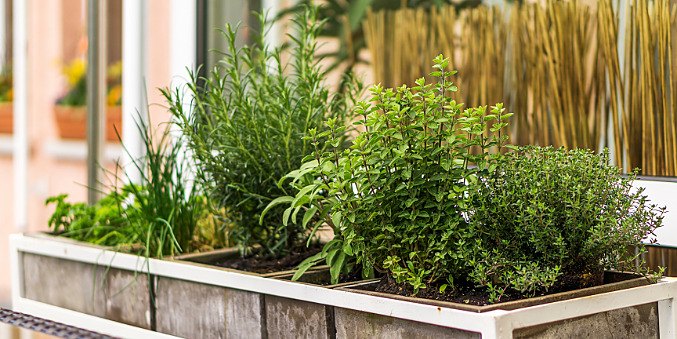
Feeding and watering
Like all plants, herbs need regular watering and feeding to thrive, but be careful not to overwater them - herbs prefer moist but not waterlogged soil. Use a high-quality, balanced fertiliser once a month during the growing season to help keep your herbs strong and healthy.
Top tip: Avoid using a potassium-rich fertiliser as this may promote flowering, instead of growth.
Top tip: Avoid using a potassium-rich fertiliser as this may promote flowering, instead of growth.
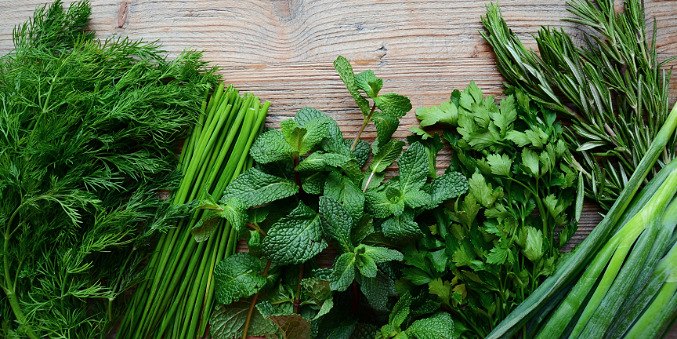
Harvest your herbs regularly
One of the joys of growing herbs is being able to harvest them for use in your cooking. Regular harvesting encourages your herbs to grow fuller and bushier, and you can harvest herbs as soon as they reach a few inches tall. Use sharp scissors to snip off the top third of the herb's stem, leaving the lower leaves intact. Be sure not to remove more than one-third of the plant to ensure regrowth.
Once you've harvested your homegrown herbs, it's time to start cooking! Here are some simple and delicious recipes to try:
• Pesto: Blend fresh basil leaves, pine nuts, garlic, parmesan cheese and olive oil in a food processor until smooth. Mix with hot pasta and add a few extra basil leaves to garnish.
Once you've harvested your homegrown herbs, it's time to start cooking! Here are some simple and delicious recipes to try:
• Pesto: Blend fresh basil leaves, pine nuts, garlic, parmesan cheese and olive oil in a food processor until smooth. Mix with hot pasta and add a few extra basil leaves to garnish.
• Herb Roasted Potatoes: Combine sliced potatoes with fresh herbs such as thyme, rosemary, oregano and a little olive oil, then roast in the oven until crispy and golden brown.
• Lemon and Herb Roasted Chicken:Season a whole chicken with freshly chopped herbs like parsley, thyme and rosemary, and lemon zest.
• Herb Butter: Mix softened butter with chopped fresh herbs like chives, parsley and tarragon, a little salt and black pepper. Spread on bread, melt over grilled steak or fish, or use to baste chicken or vegetables.
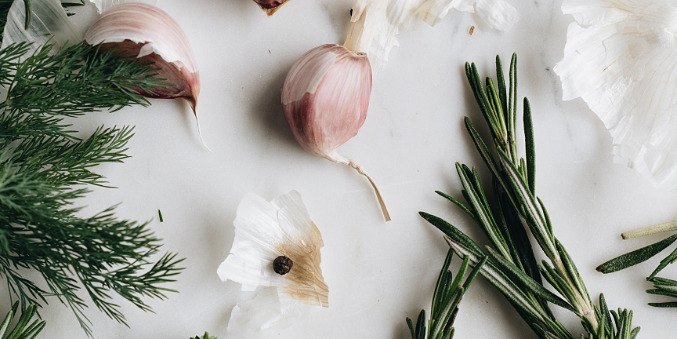
Growing your own herb garden can be a rewarding skill that saves money and reduces your need for shop-bought herbs. With a few simple steps, you can have a thriving herb garden at home in no time!
Related products
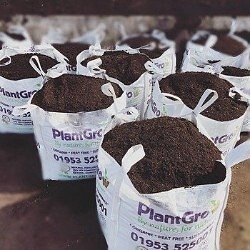
Bulk compost & mulch
Have a bigger project in mind? Save time and money by buying in bulk.BUY IN BULK
Comments (0)
Why not be the first to send us your thoughts?

